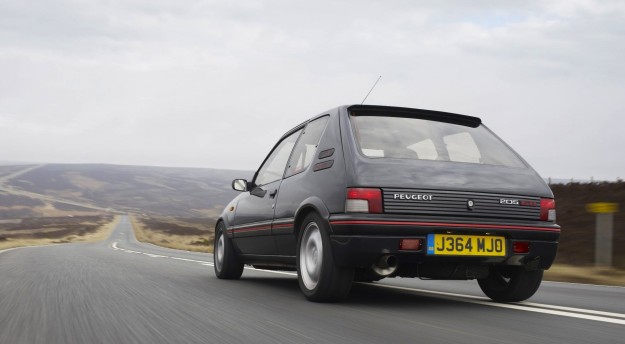
The upcoming Peugeot 208 GTi will have closer parallels to the famous 205 GTi of the 1980s, says the French car manufacturer.
The 205 GTi’s successors to date, the 206 GTi and 207 GTi, weren’t short on engine performance but couldn’t match the pure handling fun of the original.
A new 208 city car that’s lighter than the 207, however, provides the perfect basis for a great GTi variant, says Peugeot.

“The 208 has less weight [than the 207] and it’s really important for this type of car because you have more driving pleasure with lighter car,” says Alexandre Cazeax, product manager for the 208 range.
“The 208 GTi is 70kg lighter than the 207 GTi. And of course we have a more powerful engine so you can imagine the car will have better performance.
“We want to have a 208 GTi that respects the history, the DNA of the GTi brand … and yes the most successful GTi was the 205.”

The new 208 GTi weighs 1160kg and is powered by a 147kW 1.6-litre turbocharged four-cylinder but uses just 6.1 litres of fuel per 100km. It sprints from 0-100km/h in 7.0 seconds.
Peugeot has benchmarked key rivals including the Mini Cooper S, Renaultsport Clio and Volkswagen Polo GTI, but says the 208 GTi needs to be more than just a hot-hatch.

“The original 205 GTi was a nice sporty car,” says Peugeot’s director of product communications, Christophe Chateau. “There was the Renault Turbo that was also sporty, but it was less elegant.
“[The 205] was pleasant to drive but it was also quick. The big change [between 205 and 208 GTi] is modernity.
“The GTi is not just sporty but also chic. Then in terms of fuel consumption to be acceptable, in terms of safety [being better], it’s very important. Thirty years after [the 205] things have changed.
“The 208 GTi is not a radical sporty car like a [Citroen] DS3 Racing. I haven’t tested it but Clio RS is perhaps better on a racetrack. The main objective [of GTi] is to be better on the road for everybody.”





